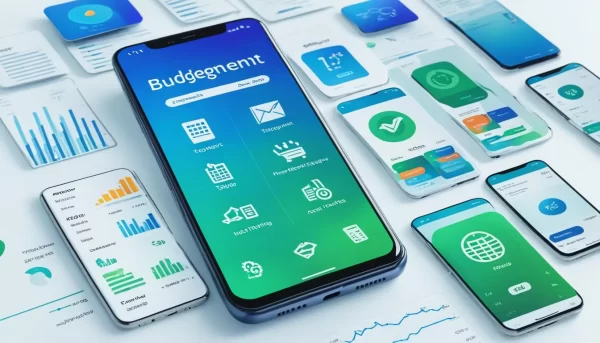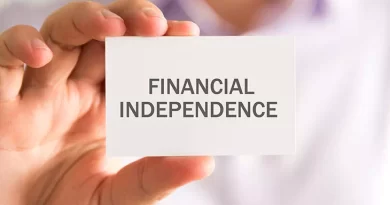Take Control of Your Finances: The Evolution of Personal Finance Apps
In an era where financial management is more critical than ever, personal finance apps have emerged as a game-changer. With more people juggling multiple income sources, investments, and spending habits, these apps offer a streamlined way to manage money, providing users with unparalleled convenience, transparency, and control.
Why Personal Finance Apps Are Becoming Essential:
The rising popularity of personal finance apps is easy to understand. These digital tools cater to a wide range of financial needs, whether it’s tracking daily expenses or keeping a close eye on investments. Here’s why they’ve become indispensable:
- Unmatched Convenience: Personal finance apps give users the freedom to manage their finances anytime and anywhere. Whether at home, on the go, or during a quick break, these apps offer instant access to your financial data, making it easier to stay in control.
- Holistic Financial View: These apps typically provide a comprehensive overview of your financial situation by linking various accounts, including bank accounts, credit cards, investments, and loans. This consolidated view helps you easily assess your overall financial health.
- Effortless Budgeting: Budgeting can be challenging, but personal finance apps simplify the process. With automated tracking of expenses, customizable categories, and spending alerts, these apps help users maintain their budgets and make adjustments as needed.
- Goal-Oriented Planning: Whether saving for a major purchase, a trip, or an emergency fund, personal finance apps enable users to set and track financial goals. With visual aids like charts and graphs, you can monitor your progress and stay motivated to reach your targets.
- Educational Insights: Many apps go beyond basic tracking by offering financial education and personalized insights. These features help users make smarter financial decisions, avoid common mistakes, and boost their financial literacy.
Top Personal Finance Apps to Explore:
Choosing the right personal finance app can be overwhelming, given the numerous options available. Here are a few standout apps, each designed to meet specific financial needs:
- Mint: A favorite for its intuitive design, Mint offers a comprehensive solution for tracking expenses, creating budgets, and monitoring credit scores. It also provides personalized tips to help users save more effectively.
- YNAB (You Need A Budget): YNAB emphasizes proactive budgeting, encouraging users to assign every dollar a specific purpose. Its approach is designed to help users break free from living paycheck to paycheck and build a sustainable financial plan.
- PocketGuard: PocketGuard simplifies budgeting by showing how much disposable income is left after accounting for bills, savings, and other obligations. It’s ideal for those who want a quick overview of their financial standing.
- Personal Capital: For those focused on investments, Personal Capital combines budgeting tools with investment tracking. It offers features like retirement planning, asset allocation, and fee analysis, making it a great option for wealth-building.
- Acorns: Acorns is a micro-investing app that rounds up your everyday purchases to the nearest dollar and invests the spare change in diversified portfolios. It’s perfect for beginners looking to start investing with minimal effort.

The Future of Personal Finance Apps:
As technology advances, personal finance apps are set to become even more powerful. Expect more personalized features driven by artificial intelligence and machine learning, offering tailored financial advice, predictive analytics, and enhanced automation to simplify the user experience.
With increasing concerns over data privacy, developers will also likely focus on improving encryption and security measures to protect user information.
Empower Your Financial Journey:
Personal finance apps have fundamentally changed how we manage money, making financial planning more accessible and engaging. By offering a combination of convenience, education, and control, these apps empower users to take charge of their financial future. Whether you’re just beginning your financial journey or looking to optimize your finances, there’s a personal finance app ready to help you achieve your goals. Start exploring today and take the first step towards financial empowerment.
FAQs:
1. What are personal finance apps designed to do? Personal finance apps are digital platforms that help you organize and manage your finances. They offer various tools for budgeting, tracking expenses, setting financial goals, managing investments, and providing financial insights. These apps simplify the process of keeping tabs on your financial well-being, making money management more accessible and efficient.
2. How do these apps protect my financial data? Security is a top priority for personal finance apps, which use encryption, two-factor authentication, and other advanced security measures to safeguard your data. They adhere to industry standards to ensure your information remains private and secure. When choosing an app, it’s crucial to look into their security features and privacy policies to understand how your data is protected.
3. Can these apps really help me save money? Yes, personal finance apps can be quite effective in helping you save. They track your spending, highlight unnecessary expenses, and assist in setting up and sticking to savings goals. With regular use, these insights can lead to better money management and increased savings over time.
4. Are personal finance apps beginner-friendly? Definitely! Many personal finance apps are tailored for beginners, with intuitive designs and easy-to-follow instructions. Apps like YNAB and Acorns are particularly well-suited for those new to budgeting or investing, offering straightforward tools and guidance to help you get started on the right foot.
5. Is it okay to use more than one personal finance app? Yes, you can use multiple personal finance apps to manage different aspects of your finances. For instance, you might use one app to keep track of your budget and another for managing investments. However, it’s important to stay organized and not let the use of multiple apps lead to confusion or information overload.
6. Do these apps charge for their services? Some personal finance apps are free, while others offer premium features for a fee. The free versions typically cover basic needs like budgeting and expense tracking, whereas paid versions often include more advanced tools such as detailed investment analysis, personalized advice, or an ad-free experience. Evaluate what features you need and decide if upgrading to a paid version offers worthwhile benefits.
7. How do personal finance apps assist with investment management? Certain apps, such as Personal Capital, offer comprehensive tools for managing your investments. They provide insights into your portfolio’s performance, help you plan for retirement, analyze investment fees, and suggest strategies for asset allocation. These features make it easier to monitor and optimize your investment activities.
8. Can personal finance apps handle multiple streams of income? Yes, these apps are capable of managing multiple income sources by linking various accounts and categorizing each income stream separately. This feature is especially useful for those with varied income, such as freelancers or gig workers, as it provides a clear and organized view of all financial inflows.
9. What should I consider when selecting a personal finance app? When choosing a personal finance app, consider factors such as ease of use, security features, pricing, compatibility with your financial institutions, and the specific tools you need (like budgeting or investment tracking). It’s a good idea to read user reviews and try out free versions to find the app that best matches your financial needs.
10. Can these apps help improve my credit score? Yes, some personal finance apps offer tools that can help you monitor and improve your credit score. They provide access to your credit report, offer tips on boosting your score, and send alerts for any changes. By helping you manage debt, make timely payments, and keep your credit utilization low, these apps can play a significant role in improving your credit profile.




